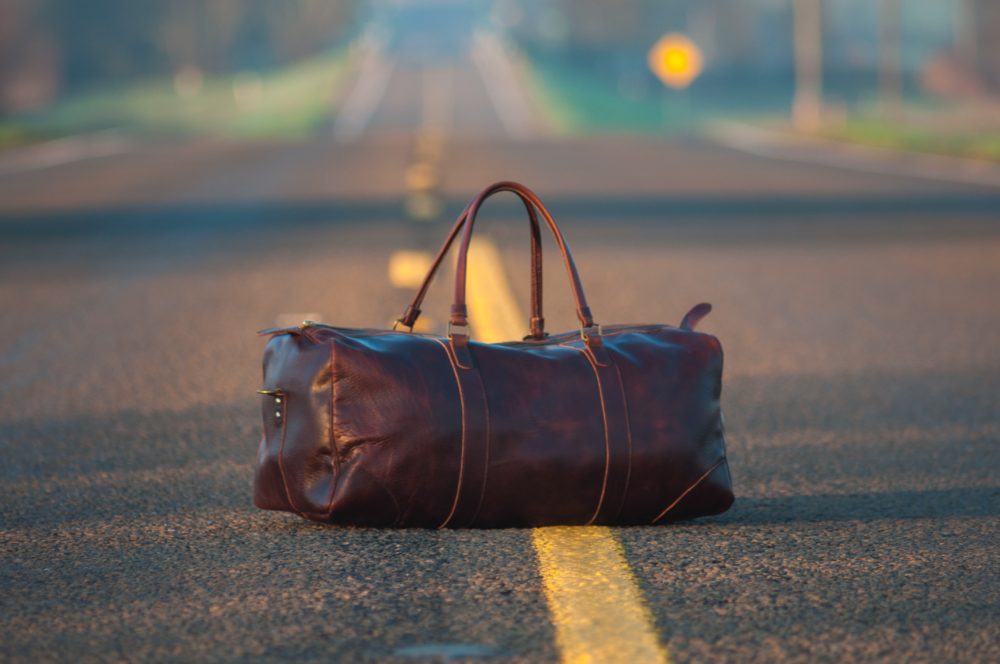
The mental health benefits of travel may seem obvious at first. Especially for folks (let’s face it, plenty of us) whose idea of getting away from it all is a quick trip to an English-speaking, Carling-serving, lout-tolerant sun haven on the Med. Blue skies, cheap beer and warm oceans, after all, can work wonders to reduce stress in the short term.
But when we return home with a bad belly, a beetroot bonce and a booze-beaten brain, are we really any better off in the long term? A recent headline in the Daily Mirror stated: “57% of Brits feel depressed or deflated after coming home”. The article states that when we subject ourselves to the post-holiday blues, that deep shock we suffer when we return to normality (and immediately beg to work from the sofa, false-flagging the all-inclusive seafood bar as our sole debilitating factor), we are actually opening the door to a form of depression. So how can we plan our travels in a way that helps us to avoid the holiday hangover and to improve our long-term mental health?
In 2010, American social psychologist Adam Galinsky set out to find the answer. His study theorised that travel has the ability to physically improve our brain’s functions, aiding our ability to think more creatively in the long term. And the results were conclusive. In his summation, Galinsky said: “Research suggests that living in and adapting to foreign cultures facilitates creativity.” Going on to explain how this can happen, the study states that travel “(a) facilitates idea flexibility, (b) increases awareness of underlying connections and associations, and (c) helps overcome functional fixedness.”
But does being creative guarantee our happiness? Elizabeth Hopper PhD thinks so. In an article for healthypsych.com, Dr Hopper said that being more creative has a variety of effects on well-being: “It can reduce stress and depression, allow us to better understand our emotions and help us to truly be present in the moment.” So if Dr Hopper can make a clear connection between creativitiy and happiness, and Galinksy’s work indicates travel has a physical benefit on our brain’s creative pathways, then the links between travel and long term happiness start to become apparent.
Galinsky also set up a second study, which asked whether travel could also help us to become more trusting of one another. After all, he theorised, mutual trust is the cornerstone of a happy social circle. Once again, the results were clear. “Across five studies, using various methods … we found a robust relationship between the breadth of foreign travel experiences and generalised trust.”
Perhaps we are finally starting to gain a better understanding of why our ancestors travelled so much, under far more difficult circumstances than we enjoy today, and why our own generation has inherited the gene. A higher level of trust, creative ability and overall happiness could have contributed to our forefathers becoming more valued members of society, increasing their chances of flourishing in the tribe, procreating and passing on the travelling bug.
So does the travelling bug simply strengthen the mind or is it possible that we can actually develop a brand new personality?
In another study investigating links between travel and mental health, social scientists Zimmerman & Neyer asked the question “Do we become a different person when hitting the road?” and the answer, once again, was a resounding yes. As a result of opening our minds to new experiences, it seems that we learn how to deal with situations differently; this, in turn, can lead to a positive and long-lasting change in our personality. The study concluded that its findings “help to fill the missing link between life events and personality development”.
Whilst the studies above are all clear in their findings that setting out on a solo sojourn can fix the mind, the US Travel Association had a different agenda when they launched their own investigation into the benefits of travel on happiness. They chose not to focus on the individual, but on couples in intimate relationships. Their survey found that “couples who travel together have healthier, happier relationships compared to those who do not.”
This result, they suggest, is most likely due to the couple finding improved lines of communication whilst travelling, then carrying this attribute into their life back at home. Whether we choose to share our trip with a loved one or not, though, it seems that travel can benefit us all. In the same way that a workout in the gym will help us become physically stronger, working our mental muscles by leaving our comfort zone, will help us to toughen our minds.
As the research has shown, new cultures, new languages, new locations and new experiences help us to think, to empathise and to grow. Even experiences which may at first seem negative – getting lost, missing a bus, or picking up a bad belly – can still result in positive growth. You get lost but you find somewhere off the beaten track, you miss the bus but you enjoy an unplanned extra night, you become unwell but someone nurses you through it, helping to deepen your emotional trust in mankind.
It seems that travel, and the indulgence of oneself in the open road and in a new environment, can literally heal our heads and our hearts.
Looking for inspiration for your next trip? Below are for some personal tips from the author’s mouth…
Rely on your wits, not on a package deal
I was 17 when I first learned the benefits of independent travel. Admittedly, I was at a half-board hotel in Magaluf, but by the time I’d rented myself a scooter I found myself discovering my love of adventure.
Go somewhere to do something
Whether you run with the bulls in Spain, train as a kickboxer in Thailand, take part in a 40,000-man tomato fight, or find a relaxing yoga retreat, there’s plenty of inspirational activities around the world to choose between. And going somewhere with a purpose in mind will help you discover the full worth of the trip.
For a shorter break, work around the flights
If you’re living in Wales or the West, try limiting your holiday search to Cardiff and Bristol airports and choose flight times that allow you to keep your circadian rhythm, waking up and getting to bed within your usual hours. This guarantees that you come home properly rested. Both airports fly to a variety of places in under three hours. Places like Palma de Mallorca will allow you some city sightseeing alongside a beach break; Greece will allow you to hop quickly between islands; and Eastern Europe can offer several different countries and cultures within a few quick train trips.
Find ways to do it cheap
If you really want to save your mental health, sometimes all you need to do is save a few pennies. I’ve been a member of a home exchange website (straight swap, house-for-house, no money involved) for 10 years and it’s completely opened up the travel experience, since you only have to find funding for flights. It’s also the best way to immerse yourself in the local culture. Personally, there’s no better travelling experience than cooking locally-sourced ingredients, from family-owned delis, in the comfort of your own personal kitchen.
